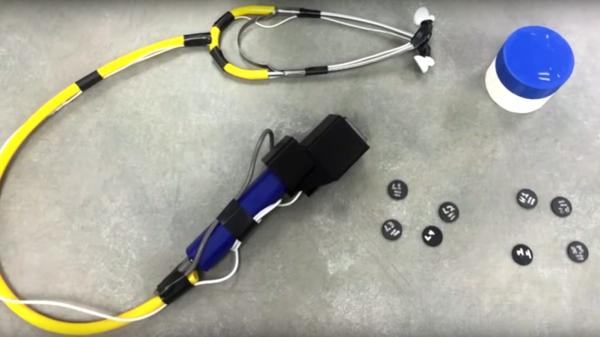For all their education, medical practitioners sometimes forget that what’s old hat to them is new territory for their patients. [David Revoy] learned that when a recent visit to the veterinarian resulted in the need to monitor his cat’s pulse rate at home, a task that he found difficult enough that he hacked together this digital cat stethoscope.
Never fear; [David] makes it clear that his fur-baby [Geuloush] is fine, although the gel needed for an echocardiogram likely left the cat permanently miffed. With a normal feline heart rate in the 140s, [David] found it hard to get an accurate pulse by palpation, so he bought a cheap stethoscope and a basic lavalier USB microphone. Getting them together was as easy as cutting the silicone tubing from the stethoscope head and sticking the microphone into it.
The tricky part, of course, would be getting [Geuloush] to cooperate. That took some doing, but soon enough [David] had a clean recording to visualize in an audio editor. From there it’s just a simple matter of counting up the peaks and figuring out the beats per second. It probably wouldn’t be too hard to build a small counter using a microcontroller so he doesn’t have to count on the cat napping near his PC, but in our experience, keyboards are pretty good cat attractants.
This is one of those nice, quick hacks whose simplicity belies their impact. It’s certainly not as fancy as some of the smart stethoscopes we’ve seen, but it doesn’t need to be.
Thanks to [Spooner] for the tip.












